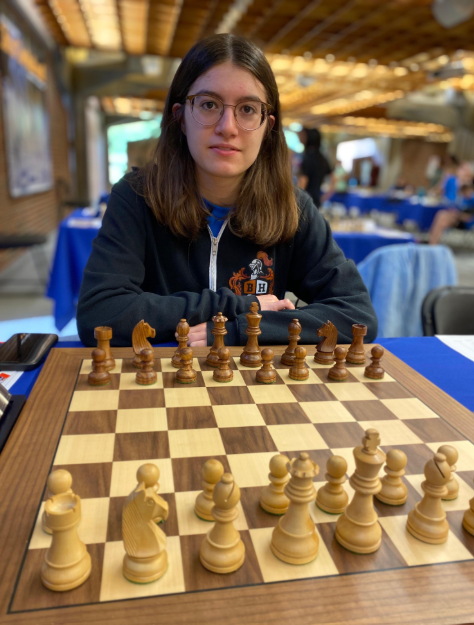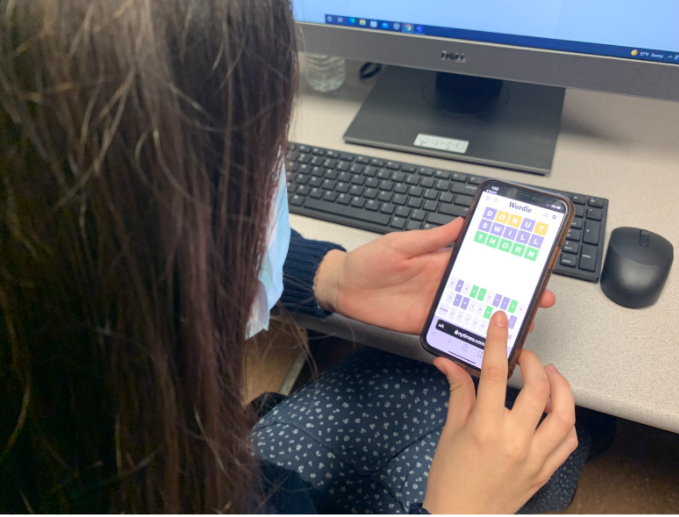Defne Onal managing editor
5 letters. More notably, a strategic combination of vowels and consonants, all attributes to a promising start to suss out the word of the day. The word game Wordle, created by Josh Wardle, has been an instant success. Students are playing it in classrooms, at lunch, nutrition and outside of school.
The game’s rules are relatively simple: players get six chances to solve a five-letter word once a day. If you’ve entirely entered a word incorrectly, the word is highlighted in gray. If a letter is right, but in the wrong place, it is highlighted in yellow. If the word is entirely correct, the word appears in green.
“I think that Wordle got so popular because it’s a simple game that anyone can play,” sophomore Adele Murphy said. “The feeling you get when you guess the word is very rewarding, which makes you want to play more.”
The game lacks ads or flashy decorations. Wordle is simply a game in front of a white background.
“I feel like people just love having something online that doesn’t demand too much of their attention,” junior Sima Arslan said. “It’s not trying to steal your data or do something suspicious; it’s just fun.”
Wordle also offers the option to share scores. According to senior Chloe Levine, the ease of sharing Wordle scores is the reason for its popularity.
“It feels like one big inside joke. You can share it with anyone online. Everyone is posting it and you feel like you’re in this inside club. You can compare how other people got their results versus how you got yours,” Levine said.
Levine’s AP Literature teacher, Dr. Steven Rubenstein, introduced his classes to Wordle.
“When I read the story about Wordle in the New York Times, I knew that I wanted to try the puzzle. I started doing Wordle that same day, and was instantly hooked,” Rubenstein said. “In my class, I always like to begin with some fast activity that gets everyone thinking — either a word puzzle or a vocabulary definition. When I came back from Winter break, I had all of my students complete the day’s Wordle. They loved the activity, and many of them continued to do the Wordle on a daily basis!”
On the other hand, senior Joseph Peter Finazzo found out about Wordle through an article he saw online, where he realized people can share their scores and compete with their friends.
“It may introduce people to new words they haven’t seen before, and challenges them to think about words more,” Finazzo said.
In the game, there are elements that reinforce players to keep playing as they solve each puzzle. For example, players receive feedback after getting a word wrong, and they know whether or not specific letters are in the correct locations.
“[A while ago], the day of the word was ‘swill’. I was so confused. It probably took me five hours to do the Wordle. I just kept coming back to it. I was on my fifth or sixth try and I was just trying random combinations. I saw something that looked right, because traditionally, ‘SW’ goes together and there has to be a vowel after ‘SW’, and I solved it,” Levine said.
As Levine solved the puzzle, she realized that the game required users to be familiar with how the English language looks and that she “just got lucky.”
When it comes to Wordle strategy, Arslan said starting with the word “audio” can be useful as it uses almost all the vowels of the English language.
“I’d say that Wordle is not only useful in getting better at the English language,” Arslan said. “It also helps people learn math and strategy, along with reinforcing the collective, social experience of students.”




























